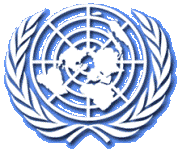by Alister Doyle
A guardian of the Nobel Peace Prize April 3 ruled out a posthumous award to Pope John Paul and experts say the Pontiff's conservative moral teachings had probably prevented him from winning in liberal Scandinavia.
For many Roman Catholics, the Pope's absence from the list of laureates is one of the biggest gaps in the history of the Prize, first awarded in 1901. Indian independence leader Mahatma Gandhi never won in what is often called the worst omission.
Yet in Norway, home to the Peace Prize, John Paul's work for peace, reconciliation among religions and a role in the fall of communism in 1989 often got less attention than his opposition to contraception, abortion, married priests and women clergy.
"There are many people who wanted the Pope to receive the Prize," said Geir Lundestad, director of the Norwegian Nobel Institute. "Over the years we have received thousands and thousands of letters on his behalf."
"But it's not possible to have posthumous awards," he told Reuters. "The statutes are very clear about that."
The statutes were changed in 1974 to ban posthumous awards for the Prizes for peace, literature, chemistry, physics, medicine and economics. The founder of the awards, Sweden's Alfred Nobel, clearly wanted them to inspire the living.
Lundestad declined to say if the Pope had ever been close to winning.
In 2003, the Pontiff had been the bookmakers' favorite when the award went to Iranian human rights lawyer Shirin Ebadi. The Pope's top aide said at the time that John Paul was not upset and was above such things.
"The Pope was conservative in his doctrines, I think that the Nobel committee would be very critical about that," said Irwin Abrams, a professor emeritus at Antioch University, Ohio, and a leading world expert on the Prize.
He also noted three of the current five-member Nobel awards committee were women, a female majority for the first time. Norway's state Lutheran church allows female priests and no political parties question rights for women to choose abortion.
Before 1974, the only posthumous awards were the 1961 Peace Prize to U.N. Secretary-General Dag Hammarskjold of Sweden and the 1931 Literature Prize to Swedish poet Erik Karlfeldt.
Both were eligible under the former rules because they were alive when annual nominations closed on February 1.
Hammarskjold died in a plane crash in September 1961 on his way to try to end fighting in Congo. Karlfeldt died in April 1931. Under the 1974 revision, laureates have to be alive when the awards are unveiled in October.
In 1948, Gandhi was among nominees but was assassinated by a Hindu fanatic on Jan. 30 that year -- two days before the closure of nominations. The committee did not award a 1948 prize, saying there was no worthy living candidate.
In 2003, some Brazilian politicians advocated a rule change to allow an award for Sergio Vieira de Mello, a U.N. envoy to Iraq killed in a bomb attack in Baghdad. Like now, the Nobel Institute ruled out any change.
In 2001, a then member of the Nobel Committee openly criticized the Pope's opposition to the use of condoms to combat AIDS. "I challenge the Vatican to redefine its attitude to condoms," Oslo's then Lutheran bishop Gunnar Staalsett said.
© 2005 Copyright Reuters
This Reuters news article is for your own personal, non-commercial use.

